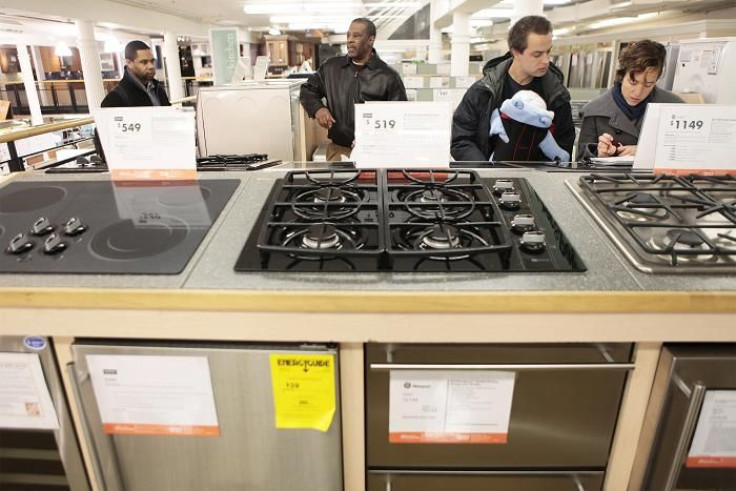Fiscal Cliff 2012: What It Means For Consumers

With Washington stuck in a confusing gridlock over how to avert the economically devastating set of cost and revenue measures constituting the so-called fiscal cliff, it appears that, no matter what happens, consumer spending is likely to take a hit in the coming year.
That’s because one of the most significant aspects of the fiscal cliff -- the expiration of the payroll-tax cut enacted in 2010 -- seems to be the one item nobody in the nation's capital is fighting to keep from taking place.
Doing away with the 2-percentage-point cut in the payroll-tax rate for almost all U.S. workers would trim net median household income by $1,035. This measure is credited with having created more than 400,000 jobs during the past three years, according to a Macroeconomic Advisers estimate reported by the Wall Street Journal. Unlike other parts of the fiscal-cliff package that lower spending on specific programs or raise taxes on specific groups, it’s the one item most consumers will see directly affecting them in the form of smaller take-home pay.
Many bank economists believe this one item is likely to whack the country's gross domestic product by about 0.6 percent next year, and they are shocked Washington is taking the expiration of the payroll-tax cut in stride.
“We are surprised that neither party has seriously challenged the case for near-term fiscal retrenchment. In particular, the expiration of the $126 [billion] payroll tax cut (1% of disposable income) is almost universally accepted,” Goldman Sachs chief economist Jan Hatzius wrote in a note to clients in October. He added that the move didn’t make sense at a time investors were lending money to the government at a negative real interest rate.
“While we agree that the US government will ultimately need to tighten its belt, a big move in a restrictive direction still looks decidedly premature to us,” Hatzius wrote.
Similarly, Michael Feroli at JPMorgan Chase Bank NA wrote in a note to clients the same month (available via Slate) that the expiration of the payroll-tax cut -- an event that would “reduce household disposable income by around $125 billion next year” -- had a difficult-to-explain cause. Feroli, who previously believed politicians would work an extension of the cut into any compromise agenda, changed his view, explaining his shift “wasn’t because of something that happened, but rather what didn’t happen: no one in the political establishment came forward to push an extension of this tax break.”
Feroli, who contended the effect from this tax hike will be felt nearly immediately in 2013, said it is possible that just this policy shift is enough to put the U.S. into recession during the first quarter of next year.
Indeed, there is already some evidence the public’s view of the fiscal cliff -- likely to get even darker once the sticker shock of a tinier paycheck is made manifest -- is affecting holiday shopping.
The nation’s most widely followed indicator of consumer confidence, the Thomson-Reuters/University of Michigan consumer sentiment index, was down in December to its lowest level since July, the Wall Street Journal reported Friday.
And the latest National Federation of Independent Business index of small business optimism is similarly pessimistic, the Washington Post reported recently.
Greg McBride of the financial-information portal Bankrate.com in North Palm Beach, Fla., said a survey conducted by the site indicates one in three consumers has "cut back on their spending within the last 30 days specifically due to concerns about the fiscal cliff," according to ABC News Radio via KMBZ. "That's not good news regardless of whether or not it's holiday shopping season," McBride said.
"If that 33 percent each spend 10 percent less and the others spend the same, consumption goes down by 3.3 percent," Robert Barone, an economist and portfolio manager at Universal Value Advisors in Reno, Nev., told Bankrate.com.
One thing seems clear: No matter what happens in Washington in the next couple of weeks, John Lieberman, a certified public accountant at Perelson Weiner LLP in New York, told CNNMoney.com, "People will spend less, and it will affect the economy.”
© Copyright IBTimes 2024. All rights reserved.











